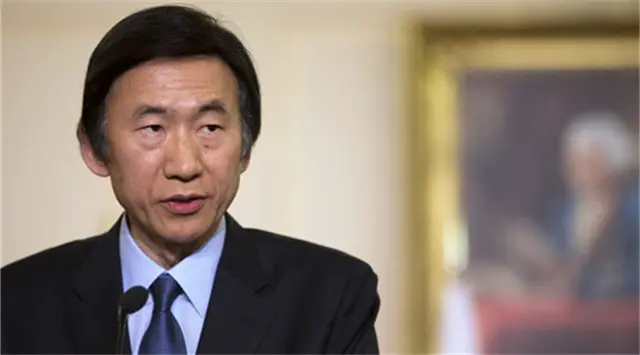Top diplomats of South Korea and the United States warned of a high price the Democratic People's Republic of Korea (DPRK) has to pay for its fourth nuclear test, Seoul's foreign ministry said on Thursday.
South Korean Foreign Minister Yun Byung-Se and his U.S. counterpart John Kerry had a phone call overnight to discuss countermeasures following the DPRK's first test of a hydrogen bomb.
The DPRK said Wednesday that it had successfully conducted its first test of a hydrogen bomb, the fourth in total, which Pyongyang claimed was a perfect success.
Yun and Kerry stressed the importance of delivering the international community's message that the DPRK would pay a high price for its provocation, agreeing to coordinate in taking bilateral and multilateral diplomatic actions.
The top diplomats also agreed to push for swift, strong UN Security Council resolutions.
Kerry said the DPRK's nuclear test, irrespective of whether it was a hydrogen bomb test or not, clearly violated the UN Security Council resolutions, vowing to deal sternly with the provocation in close coordination with the United Nations and the international community based on alliance with South Korea.
Yun and Kerry said Wednesay's nuclear test was a threat to peace and security on the Korean Peninsula and the world and was an unpardonable challenge to the international society.
They reaffirmed their position that Seoul and Washington will firmly address any DPRK provocations on the basis of the combined defense posture, agreeing to discuss sanctions against Pyongyang and other issues on its nuclear program.
Defense chiefs of the two countries also reaffirmed their position that the DPRK will not be accepted as a nuclear state.
South Korean Defense Minister Han Min-Koo said in a joint statement at the ministry's headquarters in Seoul after speaking by phone with U.S. Defense Secretary Ash Carter that the DPRK has never been, and will never be, accepted as a nuclear state.
The announcement was attended by Gen. Curtis Scaparrotti, commander of the U.S. Forces Korea (USFK), and South Korea's Joint Chiefs of Staff Chairman Lee Sun-Jin.
Han and Carter shared views that the DPRK's "flagrant provocation" was in clear violation of international law and a threat to peace and stability in the entire Asia-Pacific region.
Carter reaffirmed the U.S. commitment to defending South Korea, saying that the commitment includes all means of the U.S. extended deterrence.
Calling the DPRK's nuclear test an "unpardonable provocation," the two defense chiefs said the DPRK should pay a price for its provocation.
Han and Carter agreed that the U.S.-South Korea alliance played a pivotal role in deterring DPRK provocation and defending South Korea, pledging to stage their joint war games as planned, which Pyongyang has denounced as a rehearsal for a northward invasion.
 简体中文
简体中文





